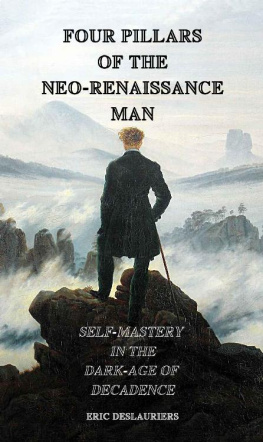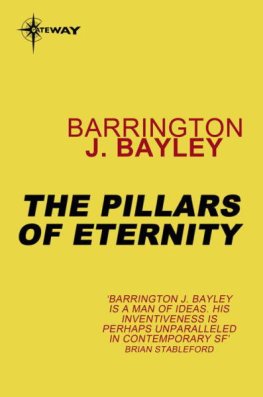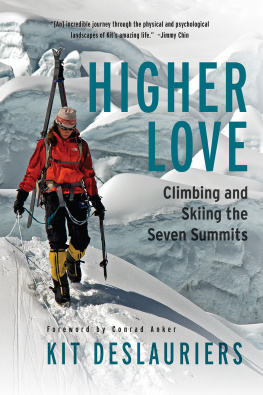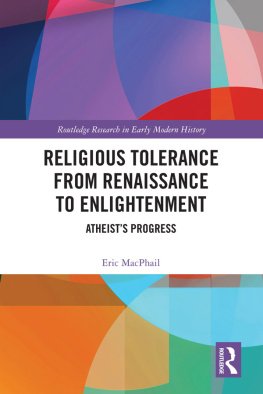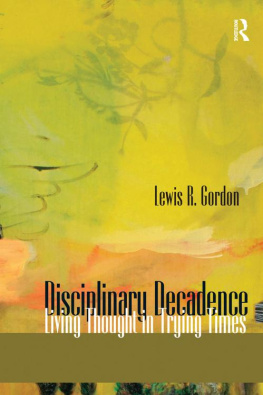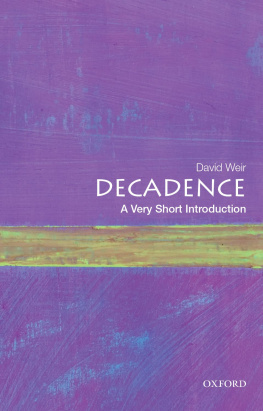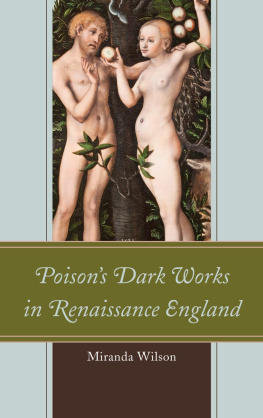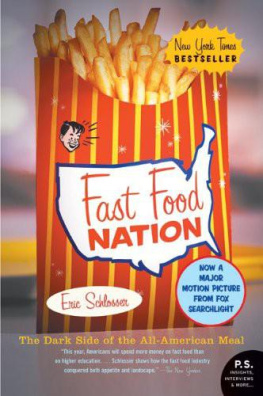Eric Deslauriers - Four Pillars of the Neo-Renaissance Man: Self-Mastery in the Dark-Age of Decadence
Here you can read online Eric Deslauriers - Four Pillars of the Neo-Renaissance Man: Self-Mastery in the Dark-Age of Decadence full text of the book (entire story) in english for free. Download pdf and epub, get meaning, cover and reviews about this ebook. year: 2019, publisher: UNKNOWN, genre: Science. Description of the work, (preface) as well as reviews are available. Best literature library LitArk.com created for fans of good reading and offers a wide selection of genres:
Romance novel
Science fiction
Adventure
Detective
Science
History
Home and family
Prose
Art
Politics
Computer
Non-fiction
Religion
Business
Children
Humor
Choose a favorite category and find really read worthwhile books. Enjoy immersion in the world of imagination, feel the emotions of the characters or learn something new for yourself, make an fascinating discovery.
- Book:Four Pillars of the Neo-Renaissance Man: Self-Mastery in the Dark-Age of Decadence
- Author:
- Publisher:UNKNOWN
- Genre:
- Year:2019
- Rating:5 / 5
- Favourites:Add to favourites
- Your mark:
- 100
- 1
- 2
- 3
- 4
- 5
Four Pillars of the Neo-Renaissance Man: Self-Mastery in the Dark-Age of Decadence: summary, description and annotation
We offer to read an annotation, description, summary or preface (depends on what the author of the book "Four Pillars of the Neo-Renaissance Man: Self-Mastery in the Dark-Age of Decadence" wrote himself). If you haven't found the necessary information about the book — write in the comments, we will try to find it.
Eric Deslauriers: author's other books
Who wrote Four Pillars of the Neo-Renaissance Man: Self-Mastery in the Dark-Age of Decadence? Find out the surname, the name of the author of the book and a list of all author's works by series.
Four Pillars of the Neo-Renaissance Man: Self-Mastery in the Dark-Age of Decadence — read online for free the complete book (whole text) full work
Below is the text of the book, divided by pages. System saving the place of the last page read, allows you to conveniently read the book "Four Pillars of the Neo-Renaissance Man: Self-Mastery in the Dark-Age of Decadence" online for free, without having to search again every time where you left off. Put a bookmark, and you can go to the page where you finished reading at any time.
Font size:
Interval:
Bookmark:
of the
Neo-Renaissance Man
in the
Dark-Age ofDecadence
Cover art and interior design by Eric S. Deslauriers
Cover image: Wanderer above the Sea of Fogby Caspar David Friedrich (c. 1818)
Media file available on Wikimedia Commons
Copyright 2019 Eric S. Deslauriers
All rights reserved.
ISBN : 9781093883831
If you refuse to let your own sufferinglie upon you even for an hour, and if you constantly try to prevent andforestall all possible distress way ahead of time; if you experience sufferingand displeasure as evil, hateful, worthy of annihilation, and as a defect ofexistence, then it is clear that you harbour in your heart the RELIGION OFCOMFORTABLENESS. How little you know of human happiness, you comfortablepeople, for happiness and unhappiness are sisters and even twins that eithergrow up together, or as in your case, remain small together.
Friedrich Nietzsche
Prologue:
The Dark-Ageof Decadence
DECADENCE:
i . the act or process of falling into aninferior condition or state; deterioration; decay;
ii. moral degeneration or decay; turpitude;
iii. unrestrained or excessive self-indulgence.
The present epoch of Western Civilizationis an age of historically unprecedented material abundance. Over the course ofroughly two centuries, we have harnessed the power of millions of years worthof condensed solar energy and bent it to our collective will: we created acivilization in which unparalleled comfort, convenience, and luxury is nearuniversally accessible. By all appearances, it would seem that this is the Golden Age of the West.
It is easy to takeit for granted, just how luxurious life has become: climate controllingtechnology integrated into almost all buildings and transportation machinery;robotic slaves that exist for the singular purpose of dutifully washing yourlaundry and dishes; everything that you sit or rest on is soft, plush, andcushioned; if you feel pain, there is medication that will numb it; if you arenumb, there is medication that will make you feel again; entertainment isavailable on-demand and in infinite quantity. All is provided for! No necessityis lacking. Every desire is seemingly fulfilled.
We are all of uschildren of this Great Age of Comfort. We live lavishly. The comforts andluxuries that we enjoy rival or exceed those enjoyed by legendary members ofroyalty in centuries past. Cleopatra may have enjoyed the luxury of having adozen slaves billowing palm leaves at her, but in our era even a poor manenjoys the luxury of air-conditioning technology and it works muchbetter than slaves with palm leaves. The average man of this Age of Plenitudeenjoys the lifestyle of a demigod compared to his ancestors who only a fewcenturies ago were probably impoverished peasants.
However, with suchphenomenal lifestyle standards comes a subtle, insidious, danger: DISTRACTION.There is a television in every room, now. The average Westerner watches five orso hours of television a day. For the sake of emphasis: the common man of our age spends almost a quarter of his day passivelystaring at a light and sound emitting amusement box.
If we are notbeing hypnotized by the television, it is the computer screen that transfixesus. If not the computer screen, it is a small screen that fits in our pocketsand is carried with us everywhere, at all times, and which stupefies us into aliteral trance as we compulsively stare and tap at it every few minutes.
It would be not anexaggeration to assert that many if not most Westerners today are on track tohave lived almost their entire livesvicariously through the medium of a screen. Virtual reality is not a futuristicfantasy technology: we have already been almost totally subsumed within it, andwe do not even seem to realize it. THE SCREEN is undoubtedly the monolithicsymbol, the totem, of this Age of Distraction.
How alluring thesiren call of distraction is, though!In Greek mythology, the Sirens werebeautiful creatures, femme fatales, who distracted sailors with their hypnoticmusic and voices into shipwrecking themselves on the island of the Sirens.Indeed, how easy it is to laze in front of the television instead of doingwhat must be done; how comforting and maternal laziness can feel, like aspiritual cocoon shielding us from the harsh and burdensome responsibilities oflife.
Videogames;junk-food; professional sportsball ; thepropagandistic mainstream media; a tsunami of pornography; alcohol and drugs;online shopping; social media and infinite scrolling: distractions , everywhere all pervasive, bombardingus on every front, through every medium, by means of every sense. TheSirenCall of Distraction: morecripplingly hypnotic than the Greeks ever imagined with their mythicalseductresses. Distraction has spiritually shipwrecked more men of ourera than Poseidon could ever lay claim to.
Never before inhistory has virtually the entire population of a civilization, cutting clearacross every single socio-economic demographic, been able to live such lives ofidle distraction and passive amusement. Once it was the case that only within aroyal domain, like the Palace of Versailles, could such lifestyles ofcolossally frivolous diversion be observed: now there are suburbs andcondominium complexes filled with millions of Petit Palais de Distraction.
Despite thephenomenal wealth and technological dazzle of our epoch, we do not live in aGolden Age. No, to the contrary: it would seem that a new Dark Age hasfurtively descended upon Western Civilization...
The Dark-Age of Decadence.
However, unlike the historical Dark-Age a millennium-and-a-half ago , in which toil and hardship represented the hallmark experience forthe Western masses, it is the softeningcaress of convenience, luxury, and comfort that has become the near universalcondition of the average man in this Dark-Age of Decadence.
In the lastEuropean Dark-Age, the West descended into comparative darkness following thecollapse of the Roman Empire. There was no more bread and circuses. For themasses during this Dark-Age , the promise of paradiseafter death was about the best one could hope for. If there were anydistractions in those times, they were distractions from the grind of peasantlife, and no one could blame a poor serf for indulging in what few pleasurableescapes he might be fortunate enough to savour.
In retrospect, theso-called European Dark-Age actually proved to be the percolating youth of anew European high-culture that eventually blossomed into what was to become theRenaissance Age. However, from the perspective of theaverage peasant during the Dark-Age , there would havebeen little sense of progression or momentum, either civilizational orwithin the context of his own life. The stasis of poverty and toil was thegeneral condition of the masses.
A Dark Age isfundamentally inertial in nature: itlacks the qualities of momentum, advancement and growth. In this Neo-Dark Ageof ours, despite the astonishing material and technological wealth of our era,the average man remains as docile, passive, and inert as his distant Dark-Agepeasant ancestors, but for different reasons:
Font size:
Interval:
Bookmark:
Similar books «Four Pillars of the Neo-Renaissance Man: Self-Mastery in the Dark-Age of Decadence»
Look at similar books to Four Pillars of the Neo-Renaissance Man: Self-Mastery in the Dark-Age of Decadence. We have selected literature similar in name and meaning in the hope of providing readers with more options to find new, interesting, not yet read works.
Discussion, reviews of the book Four Pillars of the Neo-Renaissance Man: Self-Mastery in the Dark-Age of Decadence and just readers' own opinions. Leave your comments, write what you think about the work, its meaning or the main characters. Specify what exactly you liked and what you didn't like, and why you think so.

